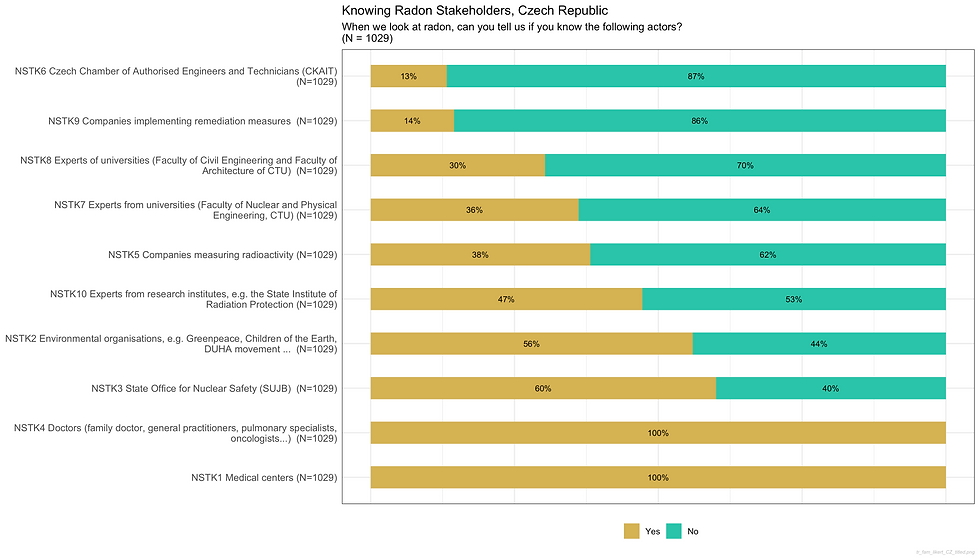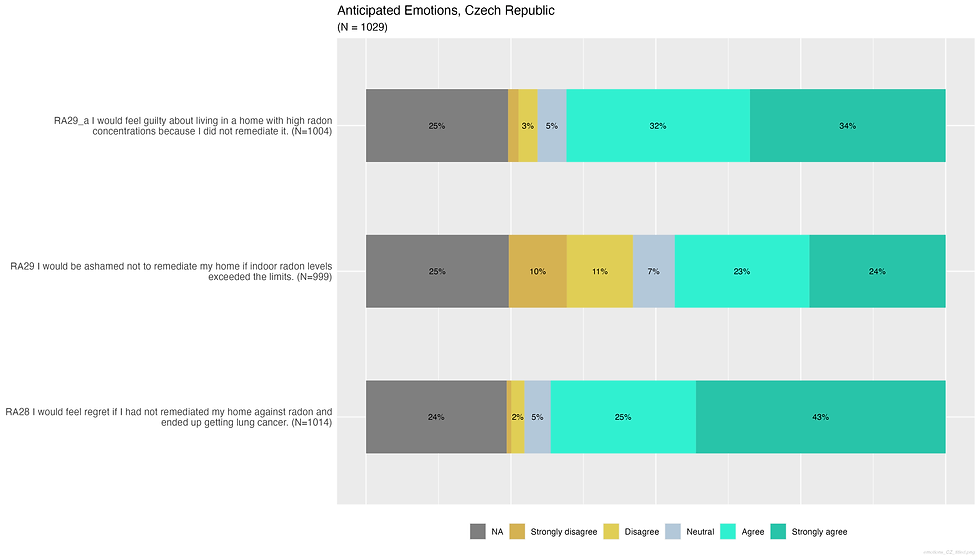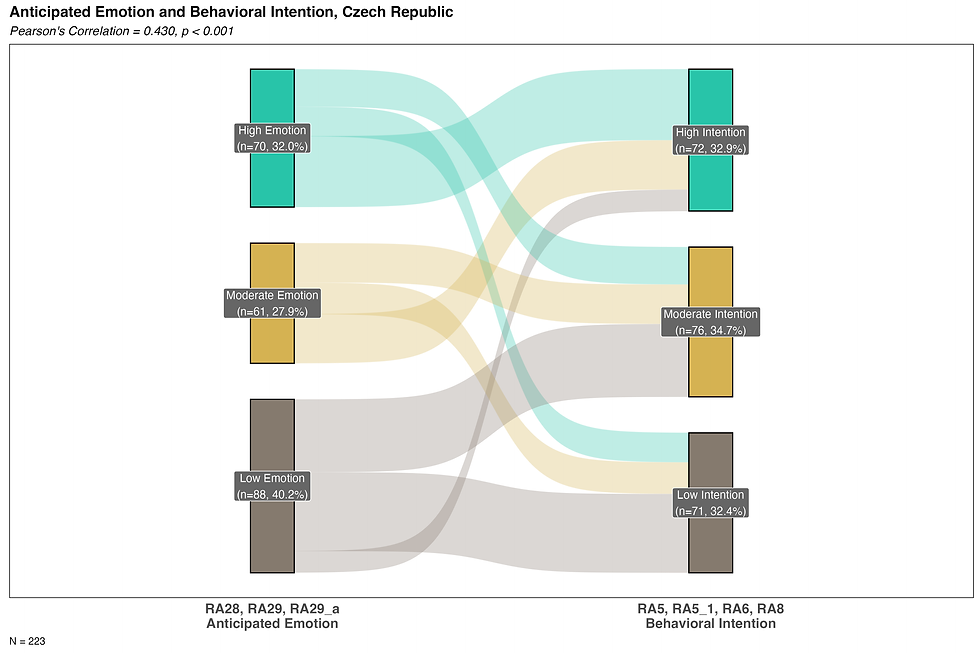Trustworthiness of radon stakeholders
Who in Czech Republic is recognized as a trustworthy source of information about radon risks?

Radon spa
Note: For information on attitudes towards radon spas, please see the 'Intercomparison of Countries' tab.

Findings for
Czech Republic
Cite as:
Perko T. (2025): RadoNorm European Radon Behavioural Atlas: Czech Republic, H2020 project RadoNorm, No 900009 https://www.radonorm.eu/
Methodology
The study utilized Computer-Assisted Web Interviewing (CAWI) to survey a representative sample of the adult population in the Czech Republic. Before the main data collection, the questionnaire was pilot tested in the Walloon region of Belgium (N = 300), followed by a soft launch in the Czech Republic (N = 200). Respondents were randomly selected from the national radon measurement survey population maintained by SURO and the marketing company MEDIAN, and each received a dosimeter for radon measurement. The final sample included 1,029 individuals aged 18 and older, stratified by gender, age, and region to reflect the demographic structure of the Czech population. The overall response rate was 52.3%. After three months of radon measurement, 36.7% of participants were found to reside in areas classified as low radon risk, 27.3% in medium risk areas, and 11.5% in high risk areas. Interviews were conducted in Czech between February 9 and February 23, 2023, with an average duration of 29.3 minutes. Data are available at: DOI:10.20348/STOREDB/1179/1300]
Download the questionnaire PDF here.
Download the technical report PDF here.
Results
Radon protection behaviour
Do people in the Czech Republic test and mitigate?


Intention to protect from radon
What is the public willingness to adopt radon protection measures in the Czech Republic?

Radon awareness
Are people in the Czech Republic aware of radon?

Radon Knowledge
How much people in the Czech Republic know about radon?


Risk perception
How do people in the Czech Republic perceive radiological, radon and other risks?


Confidence in authorities for risk management
To what extent do the Czechs have confidence in their authorities' ability to manage risks?

Knowing radon stakeholders
Which stakeholders related to radon are known to the Czechs?


Truthfulness of radon stakeholders
Who in the Czech Republic is recognized as a trustworthy source of information about radon risks?


Which stakeholders involved in radon mitigation in the Czech Republic are recognized as technically competent?
Competence of radon stakeholders



Severity
What are people's beliefs regarding the seriousness of negative consequences due to radon?

Susceptibility
Do people in the Czech Republic believe that radon increases the likelihood of health consequences?

Do individuals believe dwelling remediation is effective in reducing radon concentration?
Response efficacy: remediation

Self-efficacy
Do residents in the Czech Republic have confidence in their own ability to conduct radon testing and mitigation effectively?



Perceived behavioural control: financial and other burden and ease
Is radon testing and mitigation perceived as a financial or other burden?



Anticipated emotions
What emotions do the Czechs anticipate feeling if they do not take action against high indoor radon levels?

Social influence
What are the attitudes of respondents regarding social influence?

Moral norms
To what extent do the Czechs believe it is their moral duty to protect themselves and others from radon exposure?

Moral values
To what extent do people agree with statements reflecting moral values?

Economic impact of radon on a property value
Does a radon problem in a building negatively impact its financial value?

Subjective norms
Do family members and friends of resopondents care about radon-related issues?




Descriptive norms
Is radon testing and mitigation a common practice within social groups?

Health effect perception
Do individuals have acquaintances who may have experienced health issues as a result of radon exposure?

Stigma
Is there a risk of stigma associated with radon in dwellings?

Information processing
How do people process information about radon?

Information comprehensiveness
Is there enough information readily accessible?

Information uncertainty
Is there too much uncertainty to make informed decisions?

Affective response to information
Does information related to radon elicit negative emotions?

Preference for post-survey radon related information
Which communication channels are recommended for radon-related communication?

Factors Influencing Behavioural Intention
Radon awareness


Anticipated emotion

Risk perception


Confidence in authorities for risk management


Severity


Susceptibility


Response efficacy: remediation


Self efficacy


Perceived behavioural control: financial and other burden and ease



Perceived cost



Stigma

Economic impact of radon on a property value

Subjective norms

Descriptive norms

Moral norms

Moral values

Social influence

Health effect perception

Affective response to information

Information processing



Information comprehensiveness

Information uncertainty

Relationship Between Radon Awareness and Behavioural Intention to Act on Radon Risk

